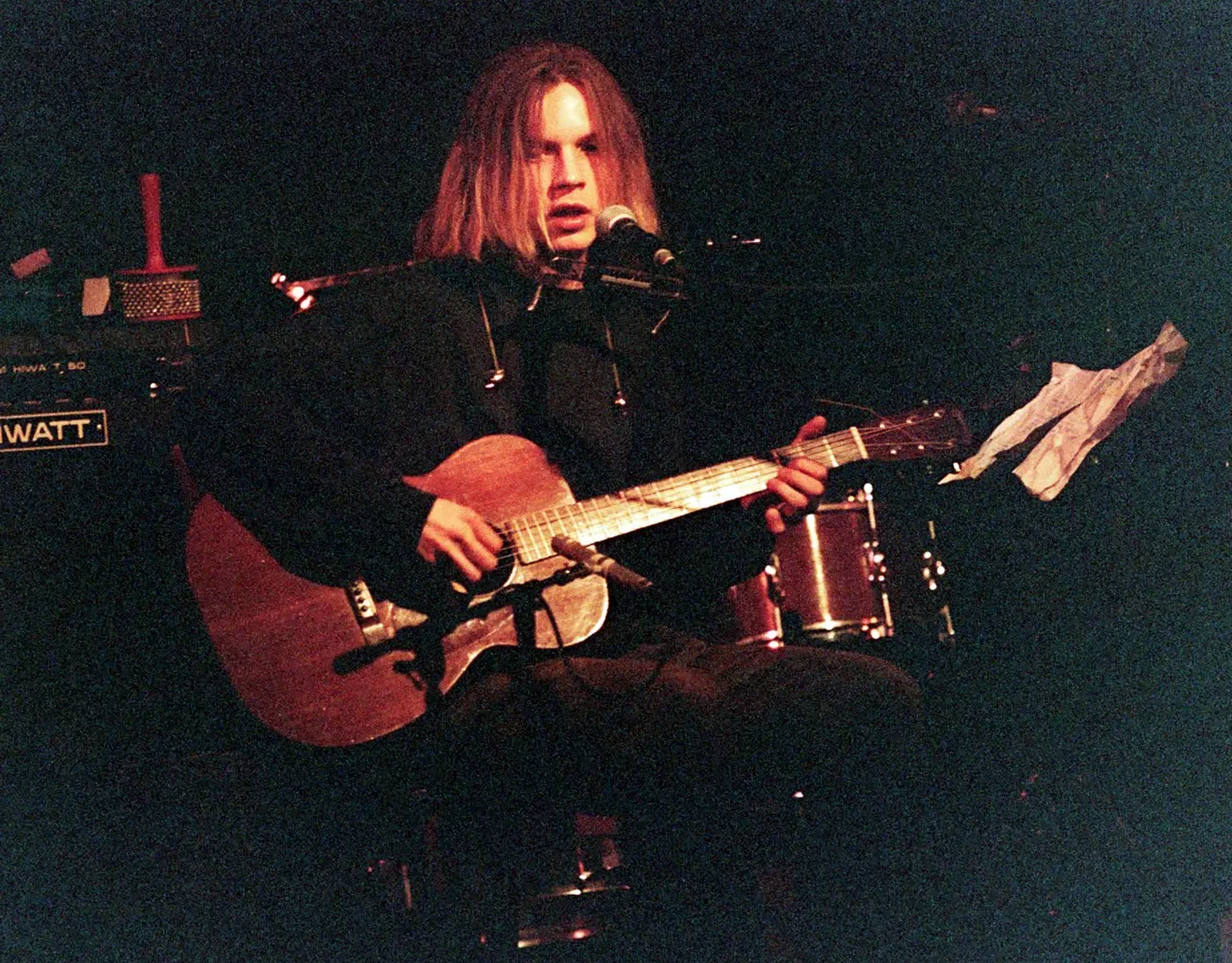Beck :: Golden Feelings
Before the commercial success and mainstream mania brought on by MTV’s push of the 1994 anthem “Loser,” Beck, like most of his generation, carried his cosmic craft on the end of a stick like that of some hysterical hobo walking through the old world streets of New York in the late 1980s in search of something spiritually electrifying. His compelling commitment to art and the sometimes terrifying textures of harmonious horror separated him indefinitely from the cultural grapple of the Grunge movement that was in full effect by the time his first full-length album, “Golden Feelings,” shocked society with its dysfunctional dynamics, and anti-atmosphere anecdotes that explore numerous subjects like love, existential bliss, liberating loneliness, and the nuclear fallout from one of Bob Dylan’s dystopian dreams. On an exploratory expedition of self-released cassettes throughout the late 1980s and early 1990s that featured titles like “Banjo Story,” “We Like Folk... Who Cares... Destroy Us,” which is said to be in private possession of Steve Moramarco who recorded the album, and “Don't Get Bent Out Of Shape,” Beck began to carve a poetic place for his music in a world that started to see an entirely new industry of political pirates manning the sonic sales of the American alternative. Known for his incredible ability to shapeshift from one skin suit to the next without so much as leaving a trail of tonal breadcrumbs for his listeners to follow along, the multi-dimensional artist released his 1993 debut album “Golden Feelings” on the Claremont, CA-based label Sonic Enemy, led by Peter Hughes of the famed Mountain Goats, while simultaneously showing listeners, and others alike, that the liberating landscape of music was just as abstract, and free if you so choose to keep them guessing at every turn.
“Poetry to me is…just like baring your soul. You’re just saying what’s in you. You’re communicating. I think it’s great to be free like that.”
An effortless expression of the essence of experimentation and brain-baking depravity, Beck exercises his entertaining empathy for the youth of his generation who felt as if they had been smeared across the chipped walls of society by the boomers, and their complacency during the "Post-Cold War” decade. The same year that brought you Digable Planets’ debut “Reachin’ (A New Refutation of Time and Space),” Morphine’s “Cure For Pain,” Wu-Tang Clan’s debut masterpiece “Enter the Wu-Tang (36 Chambers),” and The Smashing Pumpkins’ “Siamese Dream,” “Golden Feelings” creatively coexist between the basement bravery of blistering feedback, and the anti-folk spirit that influenced the veteran musician’s earliest work. Producing an elemental ecosystem suitable for the slackers, dropouts, and generational germs, the album stands as its own installment in the oscillating oblivion, and not just as some sonic shadow in the lyrical legacy of “Mellow Gold’s” “Loser.” By the age of 22, Beck had wrapped up his maniacal mantra and quickly had it pressed to tape before famously touring with Evel Knievel the following year, which, in retrospect, was absolutely on brand for the aspiring songwriter at the time. “Golden Feelings” is a fundamental fever dream as much as it is a blueprint for future release, like “Mellow Gold" and “Stereopathetic Soulmanure.” While breakdancing on the graves of dead relatives with harmonious humor and sonic skits, the songwriter unleashes his tantalising truths through vintage static as entries in a journal of juxtapositional rage. With tracks like the boiled-down ballad “Heartland Feelings", “Gettin’ Home,” “No Money No Honey,” and one of Beck’s most underrated songs in his entire catalog, “Totally Confused,” which was later featured on the flipside of the “Loser” single, with members of That Dog helping to bring the song to life from its early stages of sonic infancy. By 1994, Beck had shot to the top and began his radioactive reign on the industry with his trailer park psychedelia and chameleon-like characteristics, and the rest is history.





